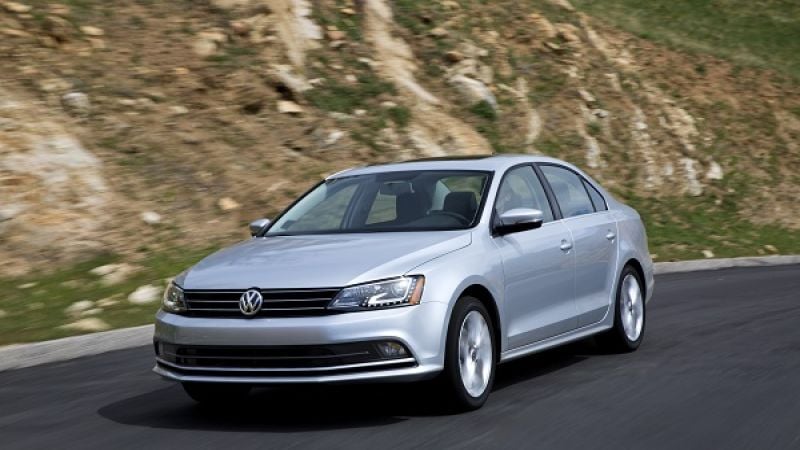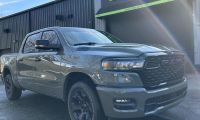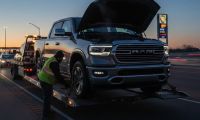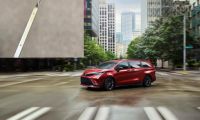Mazda just had its best month ever and simultaneously Volkswagen again lost significant ground in the US auto market. Although both manufacturers compete in exactly the same vehicle segments, and at nearly identical price points, there is one major difference. In the US market Mazda does not currently offer a turbo in any of its models. Volkswagen offers turbos in every one of its models and announced last year it would move to only turbocharged engines. Are the pricey engines and the expensive fuels they use a clue to this disparity in success, or has VW simply lost its focus on key vehicle segments?
Mazda and Volkswagen Models Match Up Closely
Mazda and VW are very similar in their product offerings, yet Mazda is on a tear and VW seems destined to go the way of Saab. In the US, VW markets its turbo diesel engines quite heavily. They are supposed to be vastly more powerful and much more fuel efficient than gasoline engines. Maybe compared to VW’s base model gasoline engines they are. The problem is they aren’t when compared to competitors’ gas engine offerings.
Is a Focus On Diesel and Premium Fuel Hurting VW?
Take the 2015 VW Jetta. Its turbo diesel engine returns 36 MPG combined. Impressive. However, the Mazda3 can achieve 34 MPG in the smaller of its two gasoline engines and 33 in its larger. A win by VW at first glance, but consider that the fuel for the VW costs about 20% more than the regular unleaded the Mazda3 uses, and in terms of fuel economy, the VW is now behind. According to Fueleconomy.gov, the Mazda will use $1,550 worth of fuel per year and the Jetta $1,600. The gasoline-powered Mazda also emits about 10% less CO2 per mile than the diesel Jetta. One would think that the Jetta diesel would be quicker to 60 MPH, what with all its torque, but it isn’t faster. The Mazda3 and VW diesel both run to 60 MPH in about 7.5 seconds, plus or minus a few tenths.
Why Did Mazda Move Away From Turbos?
Volkswagen does offer a more powerful turbocharged gasoline engine than the Mazda line does in a few of its top model trims. However, The sport VW gasoline engine is not very fuel efficient, returning just 26 MPG combined in the Jetta. Mazda used to have a turbocharged gasoline engine that could match, and beat, the power and speed of the VW gasoline turbos, but only about 5% of customers wanted that option, so Mazda stopped making those trims, much to the horror of its Zoom-Zoom fans.
The Passat vs Mazda6 mid-size comparison is very similar. So is the comparison of the VW Tiguan and the Mazda CX-5 crossovers. In the larger CX-7 and VW Touareg class the matchup is not as clean, but with only 581 Touaregs sold in July, does it really matter if the model fits our scenario?
Sales Numbers and Trends Favor Mazda
Year to date VW is down 14% and Mazda up about 9%. If it is not the more expensive and more thirsty turbocharged engines VW is offering that account for this, could it simply be that the three main models the Mazda brand sells are better than the three that the VW brand sells? Maybe not, since the US sales of the VW Jetta and Passat both beat the Mazda3 and Mazda6. Mazda’s CX-5 compact crossover does beat the VW Tiguan in sales, but the Mazda CX-5 is by no means a segment leader in sales. It sells at less than half the rate that the segment leaders do.
Shouldn't VW's US Manufacturing Help?
VW should have the edge when it comes to pricing. It assembles most of its vehicles in the US and therefore should have the advantage in labor costs and transportation costs. VW has also been in the US market far longer than Mazda and is a global powerhouse. Mazda makes its US models mostly outside the US, and is a pipsqueak globally compared to the VW group which also includes Porsche, Audi, and many other brands.
If Not Engines, Or A Lack Of Focus, What Then?
Mazda was up 17% in July and sold 29,238 vehicles. Volkswagen was down by 15% in July and sold 30,553 vehicles. How long until the headline is “Mazda passes VW in US sales?” One month? Two? The different design paths that these two automakers have chosen in the US are exemplified by their engine choices. VW also seems to spend a lot of time trying to sell very few specialty cars like the Eos, GTI, and Beatle Convertible. All fine cars, but all sell in very low numbers. We’d like to hear from readers why they think VW is losing US sales this year while the industry in general is growing, and why Mazda seems to be beating the growth rate of the industry without a single turbo in its lineup.
Related Stories:
Volkswagen moving to all turbo engines in last ditch effort to revive sales
Volkswagen’s newest green car is a plug-in hybrid Golf GTE
2013 Jetta Hybrid bests Jetta TDI Diesel in cost of ownership comparison













Comments
Check your facts on the
Permalink
Check your facts on the gasoline. the new VW 1.8T motors run on regular unleaded fuel, thus NOT pricier compared. the 2.0T motors do use premium however.
As a owner of a 2014 Mazda 6
Permalink
As a owner of a 2014 Mazda 6 touring 2014 VW Passat Diesel SE I think I may have some unique insight. The cost of ownership is about the same after one year of driving. One thing that I didn't find out till to late is the Mazda is about $14.00 more to insure here in California a month. I would argue that the VW's best trait is it's engine. It's just that the Mazda is better in every other way. It handles better. It looks better inside and out. It's more refined and has more electronic gadgets. The Mazda seems to be more reliable and the interior wears a lot better. The VW looks a little beat after a year. Lastly specced about the same ( Passat doesn't have all the features the Mazda has) the 6 is cheaper. I don't want to sound like a VW basher. This is my first Mazda after owning 9 VW and Audi's and have always loved them. I just want VW to do a lot better. I think VW's problem is that it is part of a huge conglomerate. They can't design cars without taking into account weather there cars will take sales from Audi and Audi is the same way with Bentley. I think we have to ask our selves is VW going to use this as a lesson and turn things around or is Audi going to suffer the same fate in the near future?
As a owner of a 2014 Mazda 6
Permalink
As a owner of a 2014 Mazda 6 touring 2014 VW Passat Diesel SE I think I may have some unique insight. The cost of ownership is about the same after one year of driving. One thing that I didn't find out till to late is the Mazda is about $14.00 more to insure here in California a month. I would argue that the VW's best trait is it's engine. It's just that the Mazda is better in every other way. It handles better. It looks better inside and out. It's more refined and has more electronic gadgets. The Mazda seems to be more reliable and the interior wears a lot better. The VW looks a little beat after a year. Lastly specced about the same ( Passat doesn't have all the features the Mazda has) the 6 is cheaper. I don't want to sound like a VW basher. This is my first Mazda after owning 9 VW and Audi's and have always loved them. I just want VW to do a lot better. I think VW's problem is that it is part of a huge conglomerate. They can't design cars without taking into account weather there cars will take sales from Audi and Audi is the same way with Bentley. I think we have to ask our selves is VW going to use this as a lesson and turn things around or is Audi going to suffer the same fate in the near future?
For me, the difference is
Permalink
For me, the difference is reliability. I still have my 2007 MS6 (turbo!). Never had anything go wrong, and I bought it new. Still looks gorgeous.
We bought a 2010 Touareg TDI for my wife. It broke down every month. Turbo, electronic modules, water pump, interior parts broke like candy. We dumped it a year later at a massive loss and learned our lesson. No more VWs.
So for us, it had nothing to do with turbos or fuel type. This was our third VW, each one successively more unreliable. But our 4th Mazda, all completely trouble free. What conclusion would you draw?
I am really sorry to hear
Permalink
In reply to For me, the difference is by Mike (not verified)
I am really sorry to hear about your bad luck with the Touareg. I am in the market for a new vehicle and have been looking at cars, crossovers and suv. I have been doing plenty of research which includes reading every car and driver and consumer reports that has come out over the past few years. Since the new Passat came out it has received great reviews and even got car of the year one year. The Touareg on the other hand has received nothing but bad grades by consumer reports year after year for as long as it has been on the US market. I know that sometimes these magazines can be a bit harsh at times on things and sometimes don't rate the way the items really are but you should have seen that this vehicle was trash before even stepping on the dealer lot.
I don't think turbos are
Permalink
I don't think turbos are killing VW sales i think its the fact that 1) Their reliability perception here is the US is not the best and 2) They are notched between a premium and a volume brand and trying to complete in both markets.
VW's may have less HP, fewer MPG, and cost thousands more than their competitors, but offer superior driving dynamics, build quality, and overall package, something that you cant put a metric on. But at the end of the day, most people in this segment generally care about price, gas mileage, and reliability. Things that don't stack up well for VW when you place it against its competitors.
Take the Tiguan for example and compare it to the Mazda CX-5. The Mazda is cheaper, offers, better fuel economy, more space, offers a driving experience similar to the VW. Also add in a fully optioned Tiguan is close to 38k which is in the Acura RDX territory!. A fully optioned CX-5 is in the 30-32k range.
Now the Tiguan does have a turbo and i've driven both vehicles, and can say the turbo is my preferred engine but it is not worth the extra premium and MPG penalty over the Mazda's 2.5. Maybe that might change with the next tiguan, but where is it? Honda, Toyota, Chevy all have great alternatives out NOW.
Another problem is they did away with A la carte options. Take the 2015 GTI, Want Nav? have to go up to the highest trim level, want 2 door model? its not out yet, how about performance pack? not out yet, what about premium audio with no sunroof? Nope cant.
What they need to do is to offer updates faster, more content, price the cars more competitively. I think the 2015 Jetta is going to be step towards the right direction with the tech updates. Though they need to keep the ball rolling.
I agree. VW is way to slow at
Permalink
In reply to I don't think turbos are by lexingtonsteely (not verified)
I agree. VW is way to slow at updating their vehicles and keeping up to date with the competition and also price them selves out of the game. They have been talking forever about getting a new tiguan on the market and also offering a diesel in the current model. Neither has happened yet. I would like a tiguan with tdi and awd or a passat to come back out with it awd diesel like it had a few years ago but after waiting two years now VW can kiss my @#$ as I bring my money elsewhere. I hope the best for them and hope they change their tune and get back to reality and start really changing for the better.
VW's are unreliable, and they
Permalink
VW's are unreliable, and they have been getting worse. It's catching up with them. Everyone I know that has owned one has horror stories. VW just refuses to address it. Over-engineered cars with too many things to break, especially with turbos. Extremely expensive parts and dealer service for cars that break often. Here's your answer VW; change your car-building philosophy to one that places reliability at the very top, like Honda & Toyota do. Design simpler engines. You can still make your premium interiors. But if they break every month then you are finished. You had your chance and chose not to make reliability a priority.
And now you can get a "turbo-charged rewards card" if you buy an unreliable turbo car at VW right now. Can you use the card to pay to fix the turbo when it breaks?
Hey VW - the only reward I need is a reliable car. Try building one. Your sales will go up.
On top of being unreliable,
Permalink
On top of being unreliable, they are complex and time consuming for DIY repair. They also have cut the power train warranty in half (10 years to 5 years), which does not exactly inspire confidence that the reliability issues are getting better. Now if they were priced 3-4K below more reliable cars, that would be enough to pay for a generous extended warranty, but they aren't, so there.
I'd love to buy a VW but I
Permalink
I'd love to buy a VW but I have been scared off by their reliability issues.
As someone who just cross
Permalink
As someone who just cross-shopped primarily VWs and Mazdas, my experience may resonate.
What I'm about to say will make me sound like a Mazda fan, and I do like their cars. But we actually wound up choosing a certified used VW Sportwagen because it better met our family needs and had a classier interior than Mazdas of the same size.
I think your average consumer isn't very turbo-aware. They're mostly scared off by VW's historic reliability problems. Those aren't limited to turbos but can be exaggerated by them (one reason we chose VW's non-turbo and slightly primitive, but torquey 5-cylinder).
After the reliability difference, there's the increased interior and electronic amenities you get from a Mazda at the same price. (We're not gadget-happy, so the more straightforward VW interior appealed. But I don't think we're the norm.)
Finally, unless you're a Europhile, when you drive these cars it quickly becomes evident that Mazdas have superior suspensions, handling, and transmissions--automatics in particular. The VW steering has a certain vibe we like that Mazdas don't provide, but technically the Mazdas corner better.
Some of these differences are addressed by VW's new MQB platform featured in the latest Golf, but not all. If VW wants to see greater success in the U.S. market, simpler, more reliable engines would be a good start, along with smoother automatics that perform better in our stop-and-go traffic. Both their conventional and DSG trannys struggle a bit in that setting.
Hope you did your research on
Permalink
In reply to As someone who just cross by Dan (not verified)
Hope you did your research on the HPFP failures on the TDI sportwagens. Failure is $8000 repair because fuel injectors, fuel lines, fuel tank and the $2000 pump must be replaced. It kills everything downstream.
VW's fix for later models was to decrease fuel pressure. Anyone's guess if thats a real long term solution, not that it matters to you since you got the older model.
I do feel turbos are killing
Permalink
I do feel turbos are killing VW and yes thier only focus is on the gti which is not a great seller here in fact none of thier cars are Eos tiguan gti beetle cc ..all sell in very small numbers. I work in a office young guys love turbos women dont they tend to know turbos are not reliable. I have owned gli gti beetle turbo,passat tdi and in the last 10years not one problem.However everyone i tell to look at vw for two reasons reliability and turbos. .they all run to toyota and honda.Vw is also 7years late to add competitive suvs i love vw but the tiguan at $38,000.00 outrageous. .vw use to be a leader (beetle) now they try to follow everyone example : vw CC.
I've been looking at VW's and
Permalink
I've been looking at VW's and in general really like them, HOWEVER its their way or the highway.
They build their cars the way they want to build them (option wise) and not how buyers want them.
I'd love a 2 door automatic Golf 1.8 4 cyl with a navigation system and a sunroof - they don't make it.
I own a Jetta TDI, to my
Permalink
I own a Jetta TDI, to my option the inside of my car is very well made, everything works well on the
inside but under the hood, it is another story. The motor its self is good, the intercooler gave me a
lot of trouble with icing up, until Volkswagen finely figured out what was wrong. I ended up paying for the new cold weather intercooler and Volkswagen payed for the labor. That stopped the icing.
Now the car in setting in the shop, the fuel pump went bad at 65000 miles and along with that it took
out the EGR value, the DPF filter and two day's ago they call to let me know, that the injectors and the
common rail will have to be replaced. I told by the service people that the bill for having to replace the
fuel pump and injectors and common rail(this what happen just about 100% of the time when the pump
goes bad, because of the metal shaving the get into the system) $7000 dollars. The DPF filter is $2000
dollars by its self, I do not know what the labor is for removing and replacing and I have know I deal
what the cost of the EGR value is. The say that they think that this will be all covered by warranty but
they will not say for sure. The people that work for the Volkswagen dealership that I go to, have worked
hard to help me, they are doing their part. I run fuel add to help lube the fuel pump and injectors. They
did tell me that the old pump show no wear.
When you look on the internet, you can see where they have had problem with the intercooler and the
fuel pump but they did not address this problem right away but they did in 2015(New intercooler and new fuel pump)
This why Volkswagen sale is down, word of mouth goes a long way, as soon as I started having
trouble, I told my friend who had and it was not long after, he started having the same trouble, he
did not wait around, he traded it off.
Please go drive a VW and then
Permalink
Please go drive a VW and then drive a Mazda , Honda , Hyundai . And tell me which car you want. I have done just that. The VW rides a lot tighter and more solid , Best part more Fun to drive.
JD Power and Associates gives
Permalink
JD Power and Associates gives below average ratings to the VW in terms of quality. Read the ratings on the cars by owners. I think the VW is a good looking car but the quality isn't there. They had the US market at one time and now they're behind just about every foreign car maker.
Seriously guys, comparing a
Permalink
Seriously guys, comparing a Mazda to VW???? have you driven both cars? I sell used cars for a living, when a customer ask me to test drive a used VW, I know it's a sale VW drives like an Audi when Mazda and the rest of the cars on that price range drive like a cheap car should, noisy, rough and slow, it's that simple, you can talk all you want about reliability but VW are reliable and anyway most people keep there cars for three years only so the car will be under warranty, one more thing only the 2.0 turbo require premium, the 1.8 which is in the Passat, jetta, golf and beetle takes regular gas
Up until January of this year
Permalink
Up until January of this year, we had two VW vehicles. My 2006 Jetta TDI, which we purchased new, had reached 130K miles on the odometer. We also have a 2005 Touareg V8 with only 32K miles on it. The Touareg had been a nightmare. The throttle, which is computer controlled, has a dangerous, unpredictable lag that can last 5 seconds or more. Although other Touareg owners experience the same "death lag", VW claims that it doesn't exist. I can never get the car to malfunction when I take it to the dealer. Thus, ten years later, we still have a vehicle that is defective and that VW will not fix. We also had a 2004 Touareg V8 that had the same problem and we traded it in on the 2005, hoping that VW had corrected the problem. Fat chance! Another problem with VW is that parts are outrageously expensive for these vehicles. The Jetta TDI had a poorly-designed pumpe duse engine that had an extra cam lobe for each of the four cylinders. That extra cam lobe was used to generate the injector pressure. The extra lobe required that the other two cam lobes be much more narrow than they are for engines of conventional design. The 2005-2006 TDI engines were infamous for excessive cam lobe wear. Replacement of the cam and lifters was, typically, a $2500 repair. One positive feature of VW vehicles is the excellent design of the body structure. They are typically very safe vehicles and extraordinarily well made. Whereas the roof panels of Mazdas and even BMWs are spot welded to the side panels, on the VWs, the panels are laser brazed. In my opinion, that is an indicator of quality. The new Chrysler 200, 300 and Dodge Charger models also use this manufacturing technique (the Dodge Challenger does not). Unfortunately, VW does not have its entire act together. Not even close. VWs design focus is far too scattered. Who would buy a new Passat that has the steering wheel not centered on the driver's seat? This is apparently because VW made the US Passat version wider for fat Americans, but left the steering wheel positioned where it is on Passats sold in the rest of the world. Although we almost bought a 2014 Touareg TDI, we decided that VW didn't deserve our business and purchased a Chrysler 300 Hemi AWD, instead. My wife loves it. I am still stuck with the Touareg and its death lag.
When my company sent me to
Permalink
When my company sent me to Europe, I bought a Volkswagen Passat TDI for moving around and driving through most European Countries. The car is a standard European car, which was unnoticed among most of the cars driven there.
Everything was going soft, but a day I met a heavy rain and some drops entered into the engine through the turbo admission. From this moment I got all kind of problems. Local dealer asked me to repair the engine at my own expenses, as the car was quite new. Their solution was to install a new engine, whose cost would be the almost the same as the cost of a new car.
Never in my life I have had such a bad experience. It happens once and never more. Next time I will buy any standard car from Ford, Chrysler, Chevrolet, Toyota or even Hyundai, and I am quite sure they will never leave me thrown like a cigarette butt.
Ed Mercer
The only thing preventing me
Permalink
The only thing preventing me from buying a Mazda is their styling. If Mazda made a manual wagon with good rear visibility I'd jump all over it. For some reasons only the Euro brands like, Mercedes, Audi, VW, Mini and to some extent Ford make wagons or hatchbacks with clean lines and good rear visibility. Everyone else tries to make their car look sportier with a rising belt lines and roofs that slope way down. And what is the reason for the super thick D pillars? All these design "features" create a super ugly back end and pretty much mandate a rear camera.
It's not that hard. Minimize any rise in belt line. Have the D pillar thickness constant for a better flow. It saddens me that U.S consumers actually like the current trend. Funny how we love homes with huge windows but do not love cars with the same.
My wife has a vw Tiguan and
Permalink
My wife has a vw Tiguan and loves it. This is her second one and she tried everything else before buying. She likes the handling and the solid feel. She feels in control and safe travelling on rural twisty and bumpy roads in New Brunswick. She previously owned Hondas and Toyotas. My car is a Volvo and I enjoy driving her Tiguan just as much.
One more point about the
Permalink
In reply to My wife has a vw Tiguan and by Kolibri (not verified)
One more point about the Tiguan is that VW should have made a smaller engine possibly non turbo available for the base model. Why? well my wife has never driven her Tiguan to it's full potential, she does't care if it has a Turbo or not and 200 hp is too much for her.
Also in Canada. the SE and SEL is not available without the panoramic sunroof. My wife wanted the tan leatheret interior but not the sunroof for safety reason.
In February 2005, my wife
Permalink
In February 2005, my wife purchased a loaded 2005 Touareg V8 for $55,000. Later that year, I purchased a 2006 Jetta TDI. I drove the Jetta 139,000 before selling it last January. That particular car had the pumpe düse engine, which used three cam lobes for each cylinder. One of the lobes was used to generate pressure for the injection system. Because all three lobes were quite narrow, the camshaft was prone to failure. Repair of the engine cost thousands. I figure I was lucky to get to 139K without a major repair. Others were not so lucky. The car was also very hard on tires. Even with the very most expensive Michelins, I was lucky to get 30K on a set. Alignment was not the issue. The DSG transmission was not smooth and, when engaging on a hill from a dead stop, was quite rough. I think the car was well built from a safety standpoint.
The Touareg is another story. Gas mileage averages 12 mpg--the same as our 2007 Dodge Ram 5.7 Hemi, and the Ram will blow the doors off the Touareg. We have had ongoing problem with the "fault running gear workshop" warning coming on regularly. The dealer has been unable to either diagnose or repair the problem. The wiring harness for the air suspension had come apart, but repair of that problem did not fix the running gear problem. The car is astronomically expensive to repair. We toyed with the idea of buying a 2014 Touareg TDI, but ended up buying a Chrysler 300 Hemi AWD instead. Everything works on the Chrysler. I don't think we will be buying another VW. I will probably replace the 2005 Touareg with a Chrysler 200 AWD. Even though it has only 39K miles on the odometer and the car is virtually flawless, the VW dealer would give me only $7,500 in trade. By the way, Chryslers are some of the few cars on which the side panels are laser brazed to the top panels. I think that feature is a sign of quality construction. VW, Audi, Porsche, Mercedes-Benz, and a few others have that feature. Mazda, GM, Ford, Toyota, Nissan, Lexus, Infinity and BMW simply spot weld the two pieces and cover the seam with a piece of plastic trim. Cheap!
Quote from Angus
Permalink
In reply to In February 2005, my wife by Angus Fox (not verified)
Quote from Angus
"We have had ongoing problem with the "fault running gear workshop" warning coming on regularly. The dealer has been unable to either diagnose or repair the problem"
That's what is killing VW in Canada, and Volvo also, poor service compared with other brands. I take my Volvo to a lexus dealer for service and that is where my wife Tiguan will be serviced after the warranty expires or buy a new one.
Interesting. I take my non
Permalink
In reply to Quote from Angus by kolibri (not verified)
Interesting. I take my non-Lexus cars to Lexus for service too. I pay more, but I drive a Lexus while he work is done and I feel the added cost is worth the reduced hassles. I participate in many Lexus forums (and have founded one). It always amazes me when a member complains about the cost of routine maintenance done at Lexus. Penny wise, pound foolish is how that strikes me. Thanks for commenting.